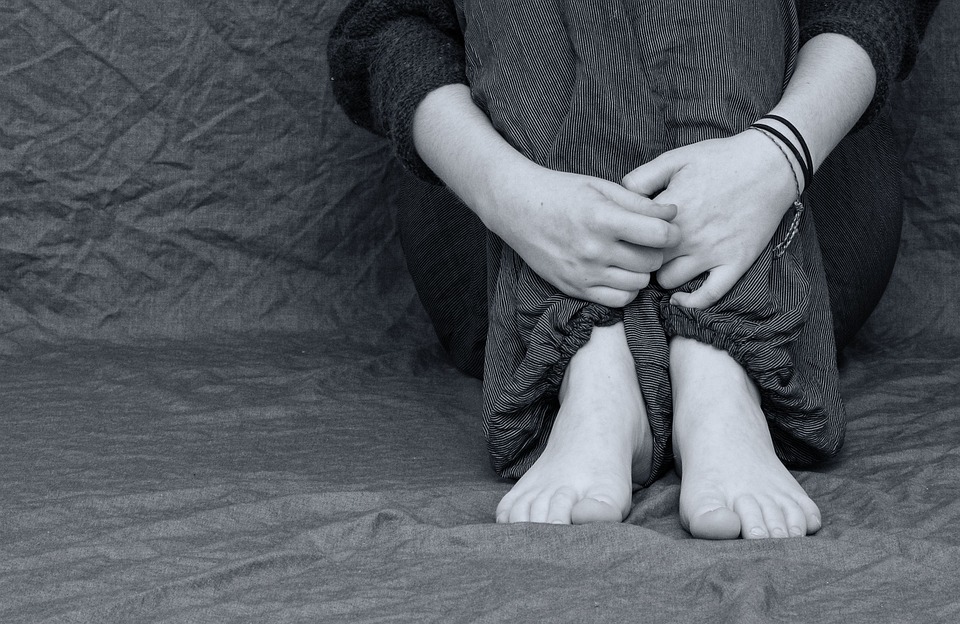If you’re like me, the first time you heard the term “behavioral health,” you automatically associated it with “mental health.” Heck, when I first heard the term I thought it was just a new way of saying “mental health.” But what is behavioral health, really?
As someone who has some mental health issues, I wanted to learn everything I could about behavioral health.
So, what is behavioral health?
Put simply, behavioral health is the connection between your behaviors and your health and well-being.
The more bad behaviors you have, the less healthy you are overall, physically and mentally.
If that answer doesn’t help at all, you’re not alone. I had problems with that, too. Behavioral health is such a broad term that it seems like it can apply to pretty much anything. It does involve your mental health, yes. However, it’s so much more than mental health.
Take diabetes, for example. If you’re diabetic, you’re probably on medication and possibly taking insulin to manage it.
However, before you were diagnosed, you may have had a whole mouth full of sweet teeth and eaten every sugary thing in sight. When you discussed your diagnosis with your doctor, they probably told you that you need to cut the sweets in addition to taking your meds as prescribed.
In this case, the problem behavior is eating sweets whenever your sweet teeth start clamoring for them. So, in order to better manage your diabetes, you need to modify your diet to not just cut down on eating sweets, but also so it includes things that help curb your sugar cravings.
You also need to identify triggers for your sweet teeth and work to curb those. Hence, modifying your behavior so you can better avoid sweets.
What Is Behavioral Health In Medicine?
www.pixabay.com
Forty years ago, the question, “What is behavioral health,” had a completely different answer than it does today. Back then, it referred to behaviors that prevented illness or promoted health.
But what about when you suffer from chronic disease or substance abuse? As times changed, so did the answer to, “What is behavioral health?”
Now it also refers to behaviors that help you manage those diseases effectively. The term and the practice have evolved over time as medicine has advanced.
What The Term “Behavioral Health” Encompasses
Since it deals with unhealthy behaviors that lead to or exacerbates illness (mental, physical, or both), “behavioral health” encompasses the behavioral part of your overall health.
You can also consider it an aspect of your identity that you can change.
While you shouldn’t feel like you have to change who you are to be healthier, happier, and strengthen your relationships, you should be aware of behaviors that may be toxic to those things. You don’t have to completely change who you are in order to modify certain behaviors so they’re beneficial instead of toxic.
The ultimate goal of behavioral health is similar to that of primary care treatment: Helping people function better so they can live healthier lives, both physically and mentally.
What is behavioral health vs. mental health?
When I was first looking into what behavioral health is, I was under the impression that it was merely a less stigmatized term for mental health, particularly where mental health services are concerned.
It turns out that’s true, but there’s a lot more to it than that.
Mental health is necessary to your day-to-day function, and seeking out mental health services automatically places a stigma on you. Now you’re sick in the head somehow, and nobody wants that.
But if you’re seeking behavioral health services, it sounds a little more…benign. Doesn’t it? That’s what I thought.
On the contrary, mental health is part of behavioral health, but behavioral health is so much more than mental health. That’s the difference.
We should note, however, that mental health and physical health share a connection.
If you suffer from a chronic physical disease, you may also develop depression and anxiety. That’s especially true if you have an illness that’s difficult to diagnose and manage.
Trying to find an effective treatment and relief for your symptoms is hard. As such, behavioral health care includes caring for your mental health as you learn to cope with your physical condition.
Origins of the behavioral health field
www.pixabay.com
While there is a difference between mental health and behavioral health, it wasn’t always that way. The behavioral health field grew out of President John F. Kennedy’s Community Mental Health Act.
This law altered how we provided mental health services, establishing a community-based approach, which medical professionals at the time felt was far better for those suffering from mental illness than “warehousing” them in asylums.
As the field began to advance, medical professionals began to feel that mental health services should include treatment for addiction disorders. That, in turn, led to the birth of the behavioral health field.
History shows that community-based approaches work far better than mass institutionalization. Because of that, we continue to deliver behavioral health services through everything from Medicaid to state and county-based programs, to other federal programs, private insurance, and self-pay methods.
Behavioral Health Services
Okay, so now you have some answers to, “What is behavioral health?”
After I learned what behavioral health was, I began to wonder if I needed behavioral health services. I also wondered how to go about finding such services. Finding psychiatrists is fairly easy for me, but I also live in a large metropolitan area.
Plus, as I’ve discussed above, behavioral health is so much more than mental health. Even so, a psychiatrist may be able to help you the most, depending on your specific issues.
Remember, behavioral health involves creating or modifying your behaviors to optimize your physical and mental health and well-being.
How to find behavioral health services

First off, ask yourself what you need. If you need medication, you can definitely see your general practitioner, who will tell you if you should see a psychiatrist. A psychiatrist is a medical doctor and can not only recommend courses of treatment but can also prescribe medications that will aid your treatment.
Psychiatrists can also provide psychotherapy, otherwise known as talk therapy or cognitive therapy. However, psychiatrists may not be the best option for you, depending on what kind of care you need.
Psychologists perform many of the same functions as psychiatrists and are likewise medical professionals, but can’t prescribe medication unless they have a license.
If your problem isn’t with your mental health or substance abuse, you may want to see a licensed professional counselor who can help you modify certain behaviors.
For help in changing and modifying behaviors to manage an illness like diabetes, you might do best seeing your primary care physician and asking for referrals to dietary specialists. You might also consider seeing a psychologist for help managing things that trigger your sweet tooth, like stress.
Awesome. So how do you find behavioral health services now that you have an idea of what you need? Well, there are several ways:
- Talking to your primary care doctor and asking for a referral
- Asking family and friends
- Calling your insurance company to see who they recommend (and cover)
- Contacting local or national mental health organizations like the National Alliance on Mental Illness (NAMI)
- Searching the internet for the type of professional you feel you need
Problems in the behavioral health field

We’ve made great strides in medicine over the last several decades. We know more about psychology and behavior today than we did 40 years ago. Even so, like every other field of medicine, it’s a work in progress.
Society still stigmatizes mental health and addiction. We also tend to stigmatize people who have trouble following their doctors’ orders when trying to manage physical conditions. Because of that, people are afraid to seek behavioral health services.
We also have problems with overlapping programs, gaps in eligibility requirements for public programs, and funding.
As if that’s not bad enough, we have problems coordinating different aspects of care as well. That makes it hard for people to get the most comprehensive care possible.
Finally, there are an awful lot of websites and other resources that still act as though behavioral health and mental health are the same things. Many find it difficult to find information that doesn’t focus almost exclusively on mental health.
Questions Related to “What Is Behavioral Health?”
You asked, “What is behavioral health?” But now you have other questions that we haven’t yet answered. Or, at least, when I first asked, “What is behavioral health,” the information I learned led me to ask questions like the ones below:
How common are behavioral health problems?
It’s difficult to say. However, every year, five million Americans experience an acute episode of mental illness.
It’s more common than illnesses like diabetes and cancer. From that, you can assume that behavioral health problems are quite common.
So if you feel like you’re alone, or some kind of odd freak, you don’t have to. Many, many other people have similar issues.
How do I know if I have a behavioral health problem?
If you suspect you might have a behavioral health problem, talk to your doctor. They’ll be able to help you answer that question and get any services you may need.
I‘m nervous about seeking out behavioral health services. What can I expect?
One of the things that people often don’t expect is to need to “audition” doctors.
You should feel at ease with your doctor, and like you can trust them to listen with empathy. If you’re seeing a doctor you don’t trust or feel comfortable with, you can look for another doctor. There’s nothing wrong with that.
It’s difficult to ask for help. Trust me, I know. The first time I sought help, I was terrified. However, I found some good medical professionals who helped me feel okay with needing help.
Your treatment will depend heavily on your unique issues. A good doctor, hospital, or another facility, will work with you to determine your needs and an appropriate treatment plan.
Have behavioral health services helped you to improve your well-being? We’d love to hear from you if you feel comfortable sharing your experience in the comments!




Leave a Reply